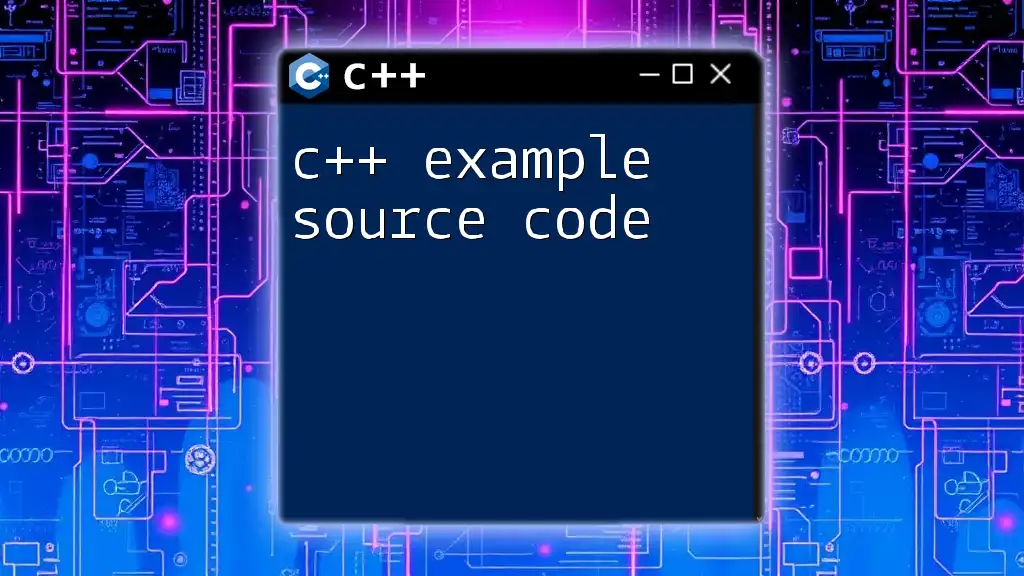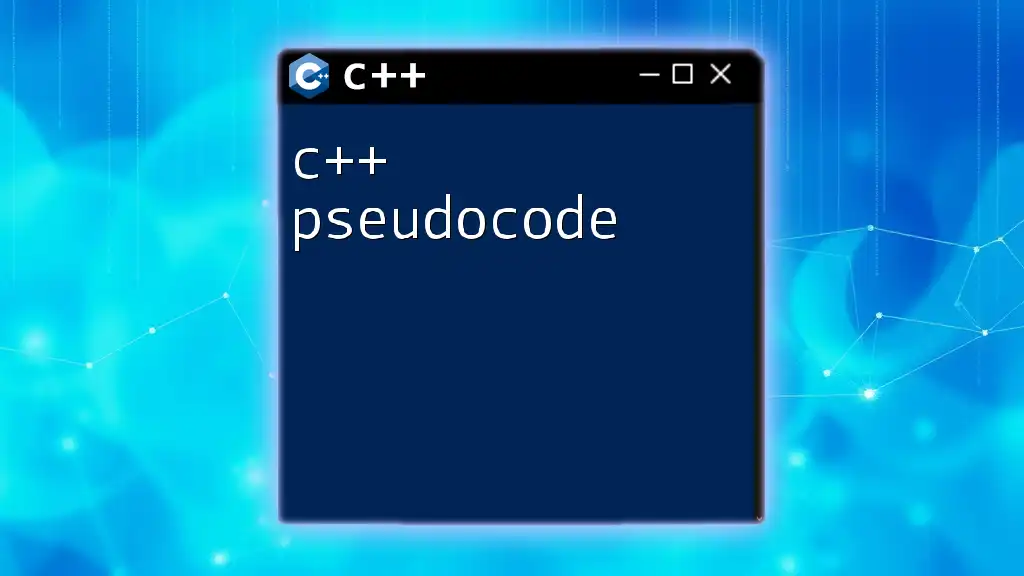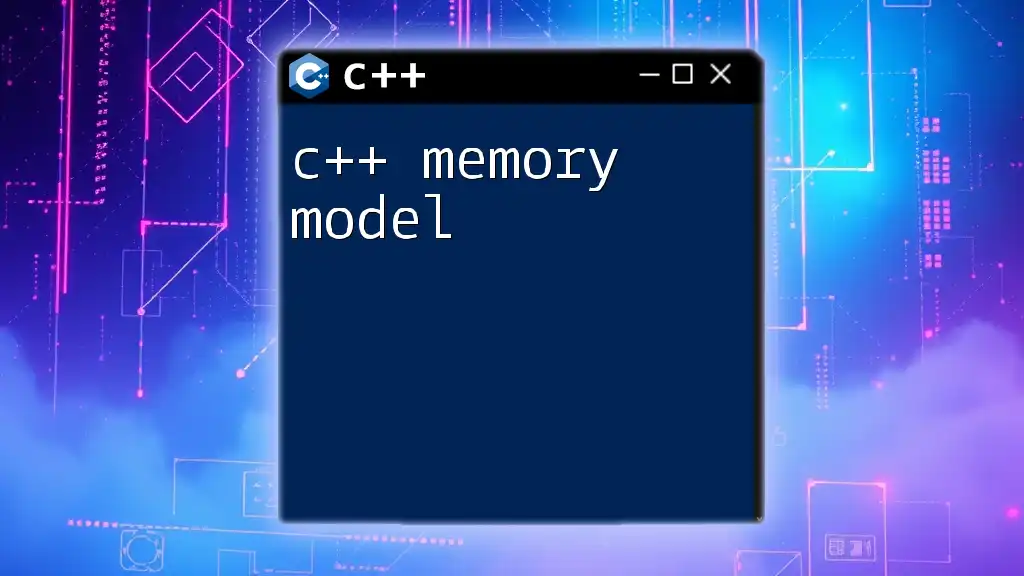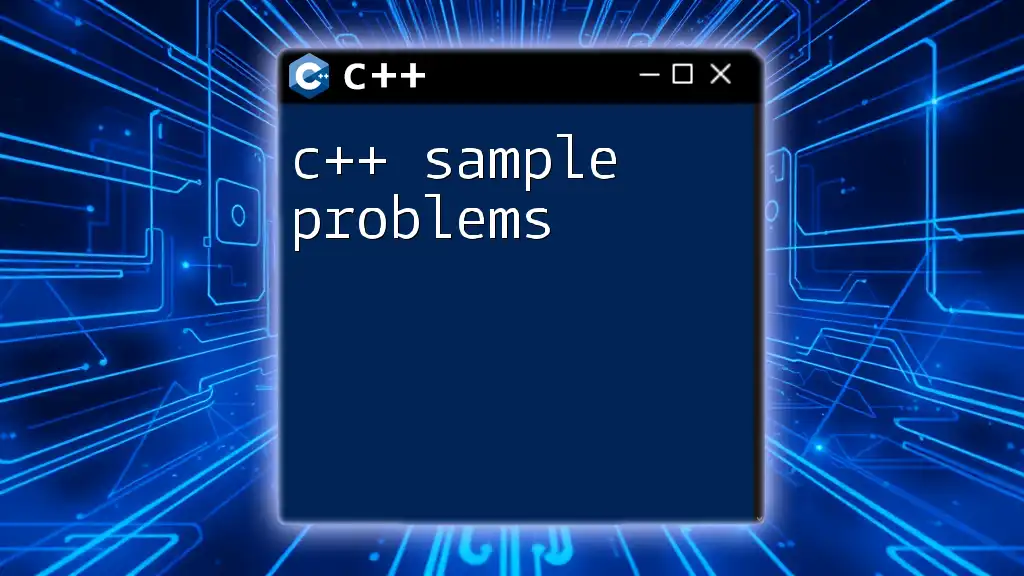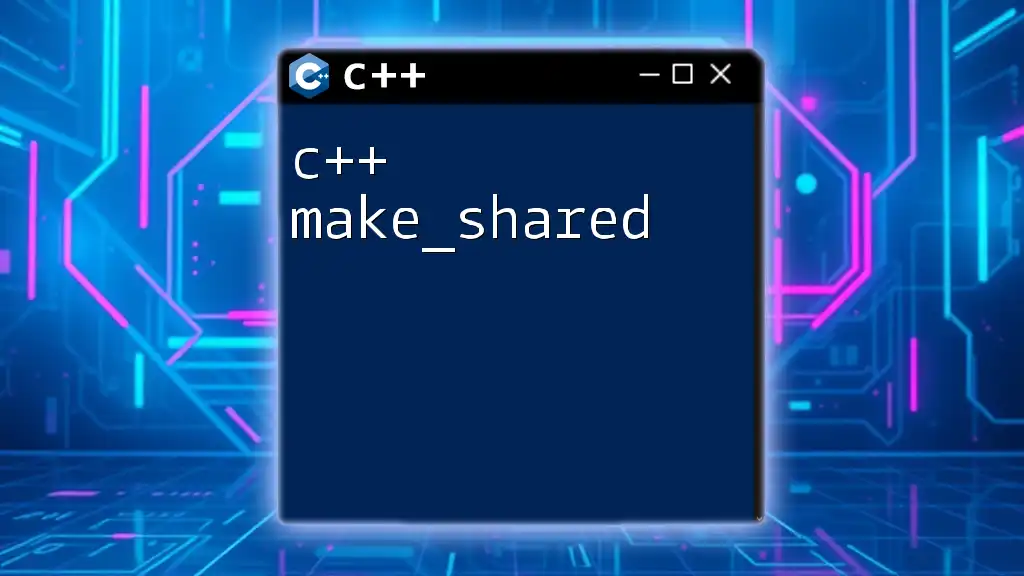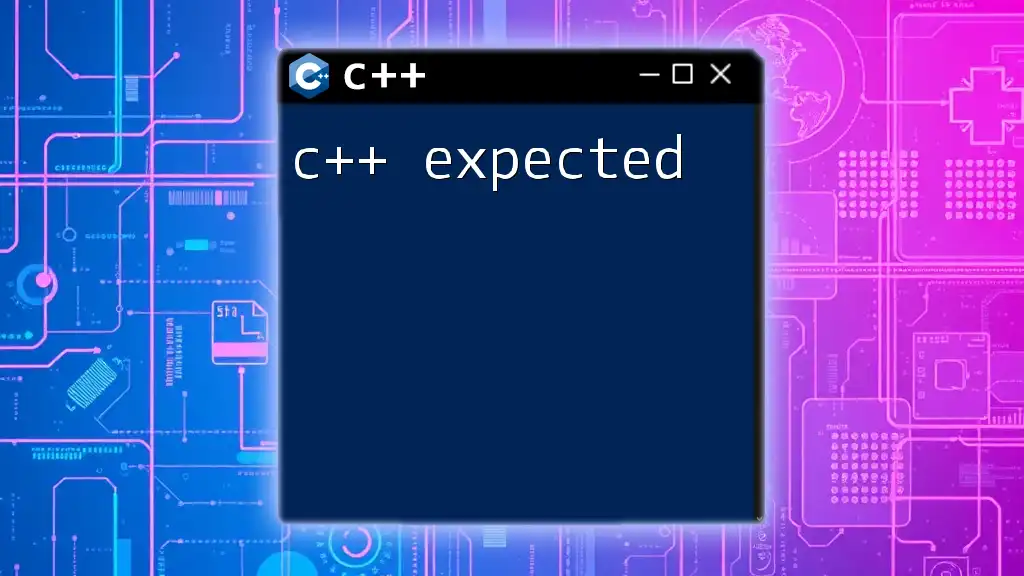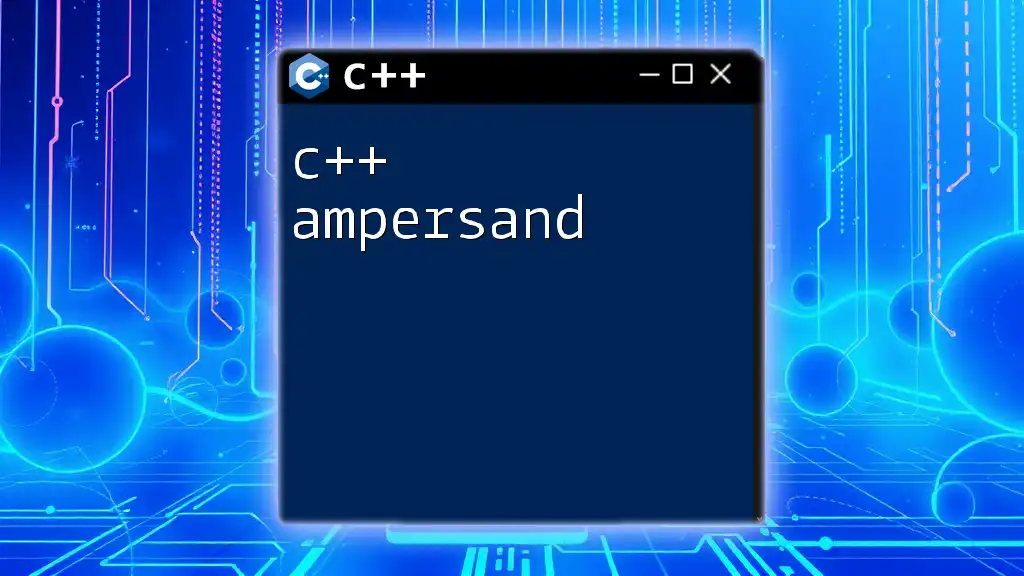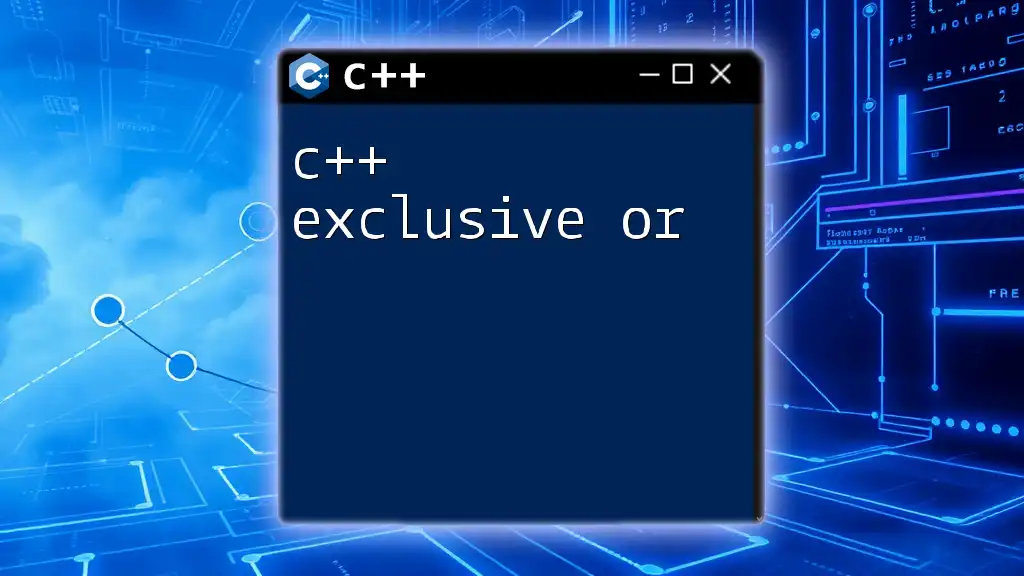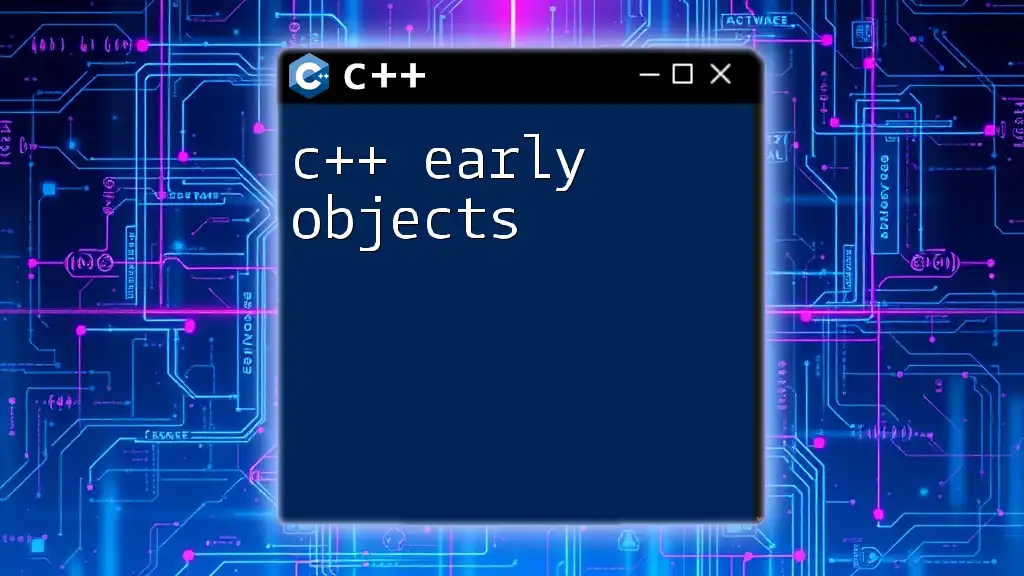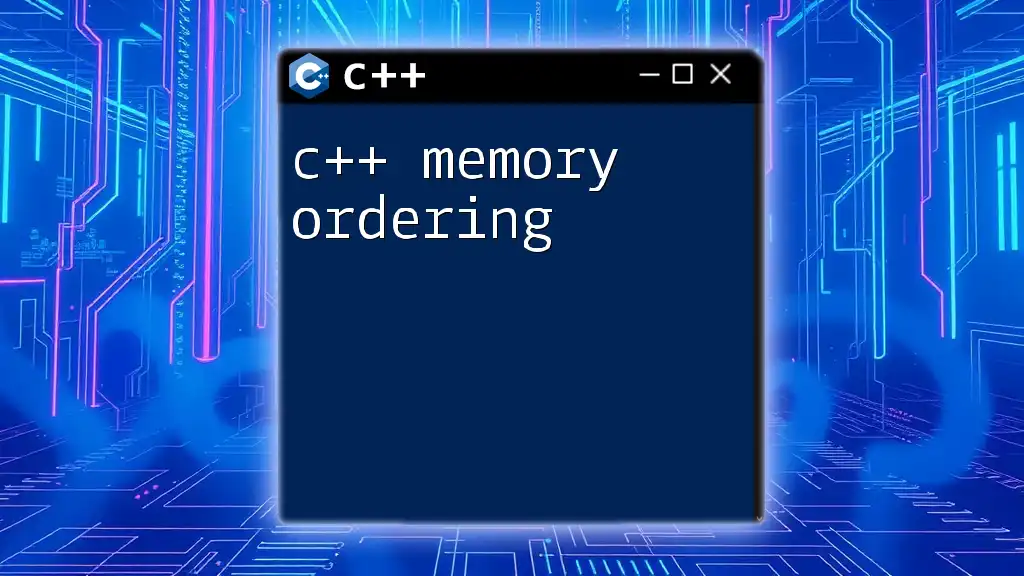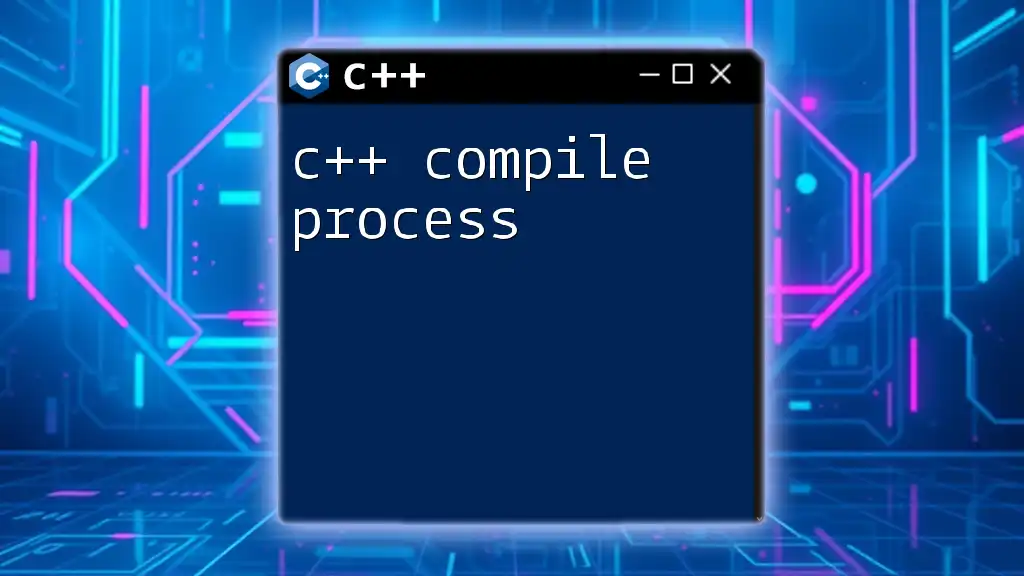C++ example source code provides practical illustrations of C++ commands and syntax to help learners quickly grasp programming concepts.
Here’s a simple code snippet that demonstrates how to declare a variable, assign a value, and print it to the console:
#include <iostream>
int main() {
int number = 42; // Declare and assign a variable
std::cout << "The number is: " << number << std::endl; // Output the variable
return 0;
}
Understanding C++ Source Code
What is C++ Source Code?
C++ source code refers to the human-readable instructions written in the C++ programming language. It serves as a blueprint for computers to perform specific tasks when compiled into an executable program. The compilation process translates the source code into machine code that the computer can execute, making it an essential aspect of programming in C++.
The Structure of a C++ Program
A typical C++ program follows a standard structure consisting of the following elements:
-
Headers: These are directives that include libraries allowing you to use pre-written code. For example, `#include <iostream>` enables input/output operations via streams.
-
Main Function: Every C++ program must have a `main` function, which serves as the entry point where execution begins. It is defined as `int main()`.
-
Variables and Data Types: C++ supports various data types such as `int`, `char`, `float`, and `double`. Variables must be declared before they are used, providing the program with a memory location to store data.
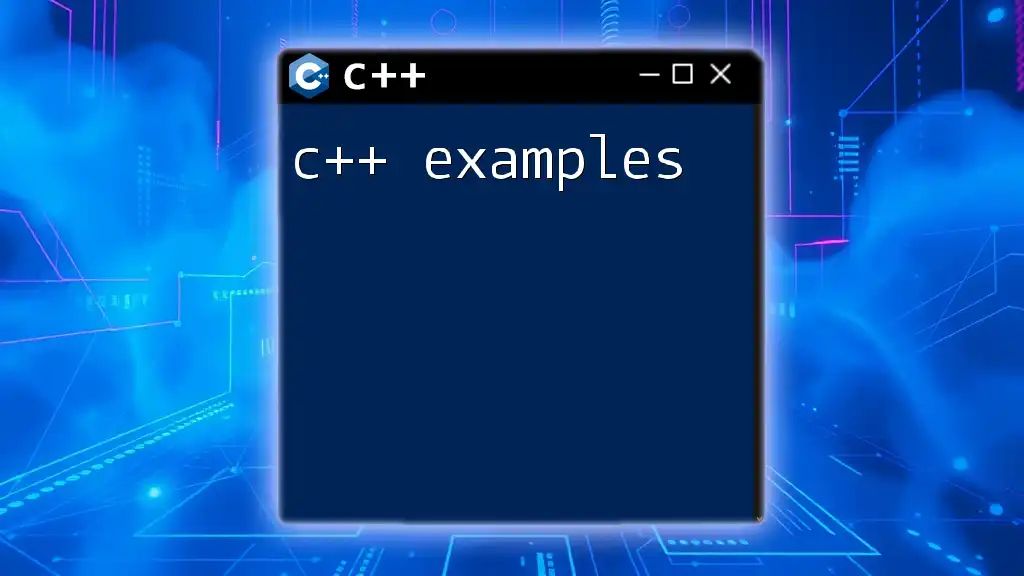
C++ Sample Source Code Examples
Basic C++ Example: Hello World
Here is the classic first program that introduces you to C++:
#include <iostream>
using namespace std;
int main() {
cout << "Hello, World!" << endl;
return 0;
}
In this example, the `#include <iostream>` directive includes the standard input/output library. The `cout` statement prints "Hello, World!" to the console, and `endl` adds a newline character after the output.
Working with Variables
Understanding variables is crucial for effective coding. Here’s a demonstration of variable declaration and output:
#include <iostream>
using namespace std;
int main() {
int age = 30;
float height = 5.9;
cout << "Age: " << age << ", Height: " << height << " feet" << endl;
return 0;
}
In this snippet, we declare an integer variable `age` and a float variable `height`. The program outputs both values, showcasing how to handle different data types seamlessly.
Control Structures: If-Else Statement
Control structures allow programs to make decisions based on conditions. Below is an example using an `if-else` statement:
#include <iostream>
using namespace std;
int main() {
int number = 10;
if (number > 0) {
cout << "The number is positive." << endl;
} else {
cout << "The number is negative or zero." << endl;
}
return 0;
}
This code checks if the variable `number` is greater than zero and prints an appropriate message. Conditional statements like these are fundamental for controlling the flow of a program.
Loops: For and While
Loops allow you to execute a block of code multiple times. Here's how to use both `for` and `while` loops:
For Loop Example
#include <iostream>
using namespace std;
int main() {
for (int i = 0; i < 5; i++) {
cout << "Iteration: " << i << endl;
}
return 0;
}
This `for` loop iterates five times, printing the current iteration index each time. It follows the syntax of starting at zero, running while `i` is less than 5, and incrementing `i` with each iteration.
While Loop Example
#include <iostream>
using namespace std;
int main() {
int i = 0;
while (i < 5) {
cout << "Iteration: " << i << endl;
i++;
}
return 0;
}
The `while` loop operates similarly but continues to execute as long as the condition (`i < 5`) holds true. Understanding these loops is crucial when you need repeated actions in your programs.
Functions in C++
Functions allow you to break your code into reusable blocks. Here’s a simple function definition:
#include <iostream>
using namespace std;
void greet() {
cout << "Hello!" << endl;
}
int main() {
greet();
return 0;
}
This snippet defines a function called `greet()` that outputs a greeting. Functions promote code reusability and help maintain organization by encapsulating functionality.
Classes and Objects: Basic OOP in C++
C++ is an object-oriented programming (OOP) language, which means it incorporates classes and objects. Here’s a simple example:
#include <iostream>
using namespace std;
class Dog {
public:
void bark() {
cout << "Woof!" << endl;
}
};
int main() {
Dog myDog;
myDog.bark();
return 0;
}
In this code, a `Dog` class is defined with a method `bark()`. An instance of `Dog`, `myDog`, is created in the `main` function, demonstrating how to instantiate objects and call methods.
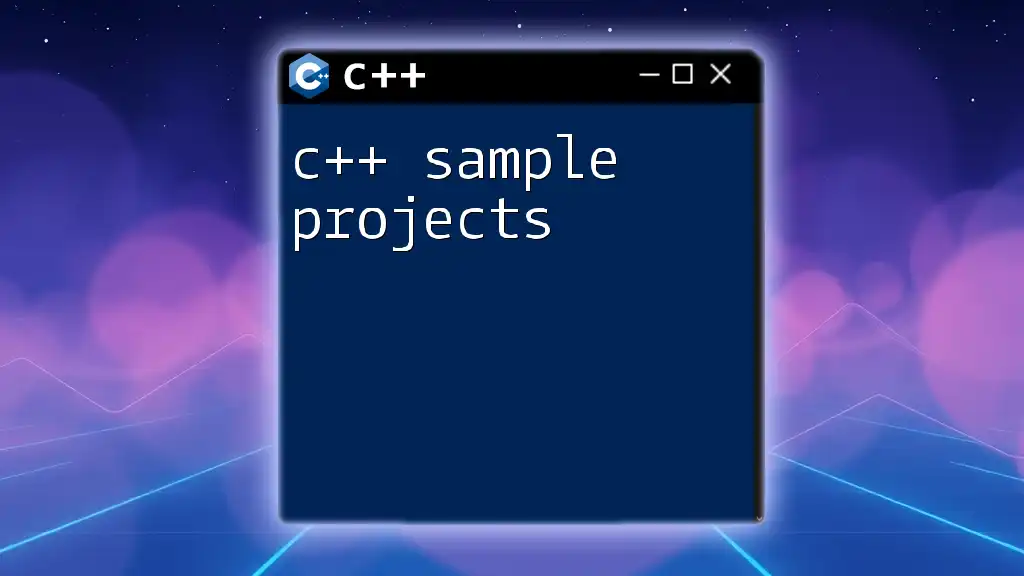
Best Practices for Writing C++ Source Code
Code Readability
Writing clear and concise code is vital. Use meaningful variable names and consistent formatting to improve readability. Adding comments throughout your code can guide others (and your future self) during maintenance.
Error Handling
Effective error handling can prevent unexpected program crashes. Familiarize yourself with exception handling in C++, using `try`, `catch`, and `throw` statements to manage errors gracefully.
Organizing Source Code
For larger projects, organizing your code into header files (`.h`) and implementation files (`.cpp`) is essential. This separation promotes better structure, maintainability, and collaboration among team members. Version control systems like Git can also help track changes efficiently.
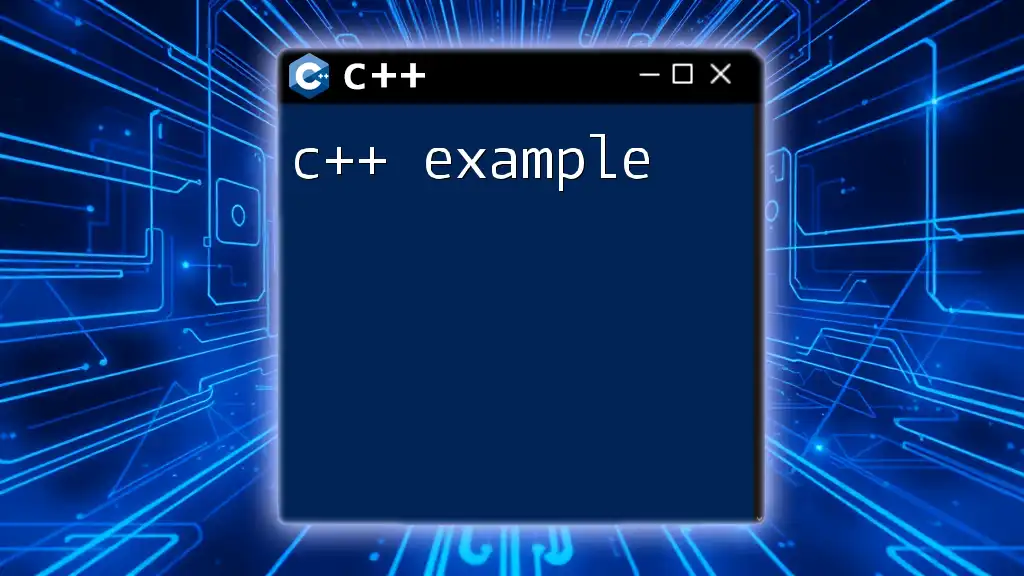
Conclusion
C++ example source code not only serves as a foundation for learning but also demonstrates the power of effective programming practices. By working through these examples, you can grasp fundamental concepts, enhance your coding skills, and build a solid programming foundation.
Incorporating these practices into your daily coding routine will greatly improve your journey in mastering C++. Remember that practice is key—keep experimenting with more snippets and projects!
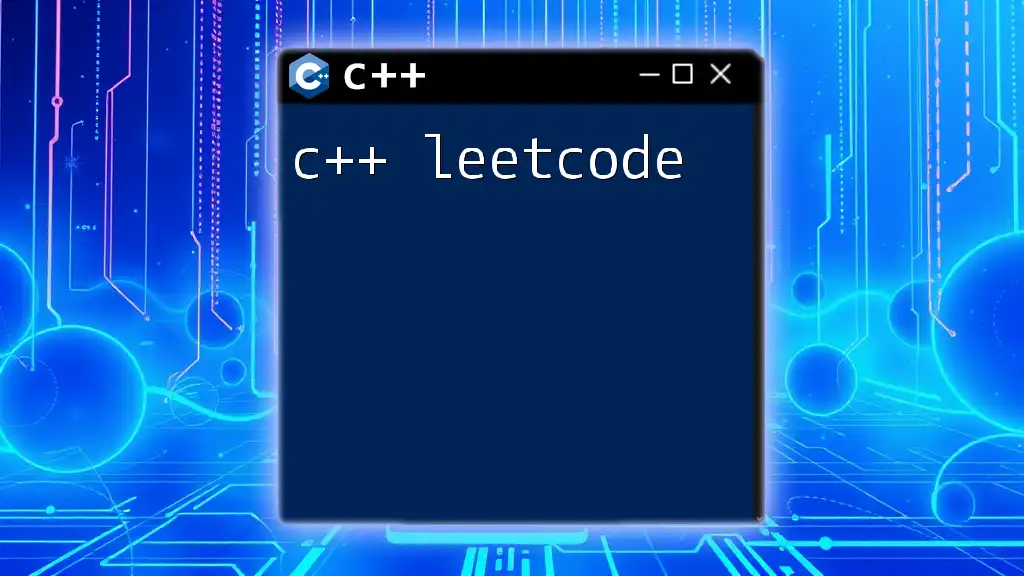
Additional Resources
To further your learning, I encourage you to explore C++ tutorials and documentation available online. Engaging with community forums and reading recommended books will provide you with more insights and deepen your understanding of C++. Happy coding!

